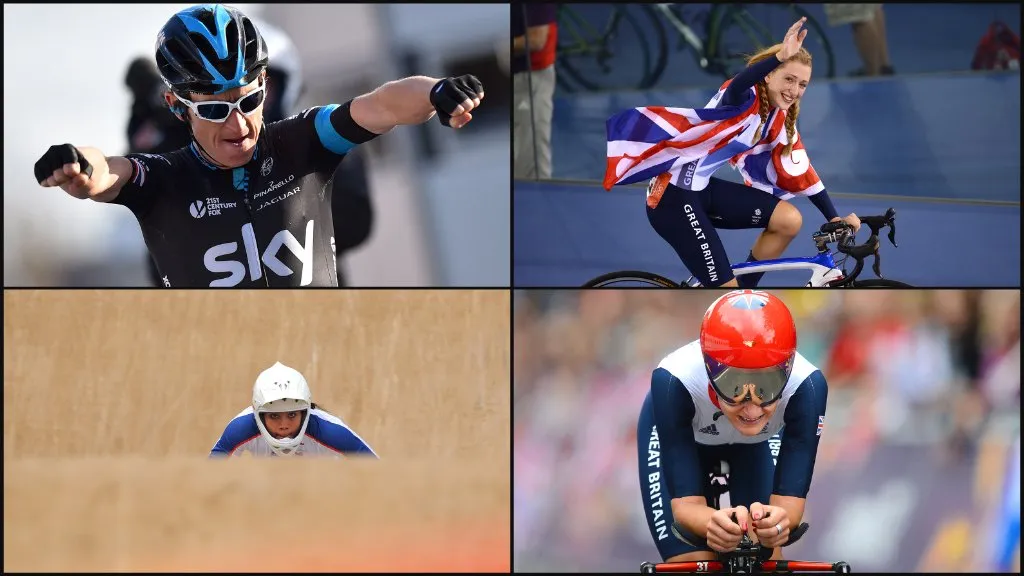If you can't beat them, join them, and after the Rio Olympics you might be tempted to do just that. Cycling Plus magazine collected some words of wisdom from riders and experts from a variety of cycling disciplines to help you make the most from your training. Read on to see what Olympic-gold-medal-winning athletes and world champions can teach you.
Endurance
By Ben Swift, Team Sky Pro Cycling rider
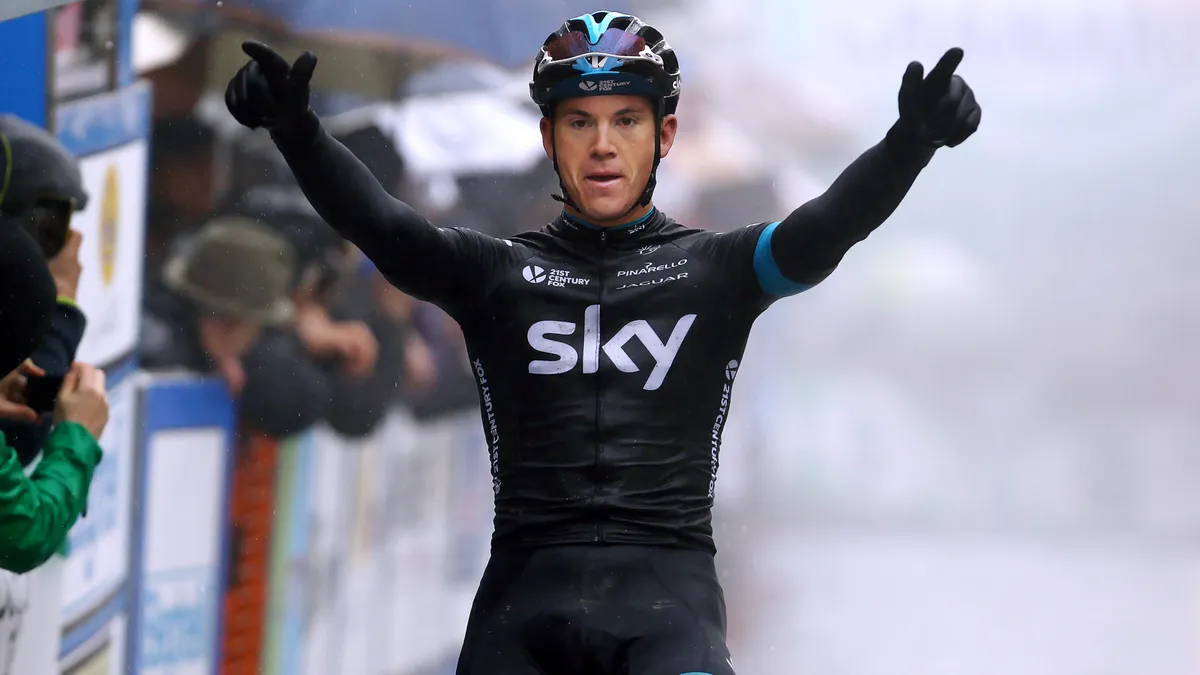
"Some people are born sprinters and some are born endurance riders, and you just have to find out what suits you best.
"The secret to endurance is having the will to stick it out, because it can get a bit mind-numbing at times. You also have to be able to put up with the strain and the stress of being on the bike for such long periods.
"Don’t keep bashing away doing long hours. Mix the training up with intensity and keep it fresh and enjoyable. Find a local club and get out on a club run with them. If there are enough people, it passes the time and you’re working much harder without realising it and having fun on the bike at the same time."
Injury
By Liam Phillips, 2013 BMX World Champion
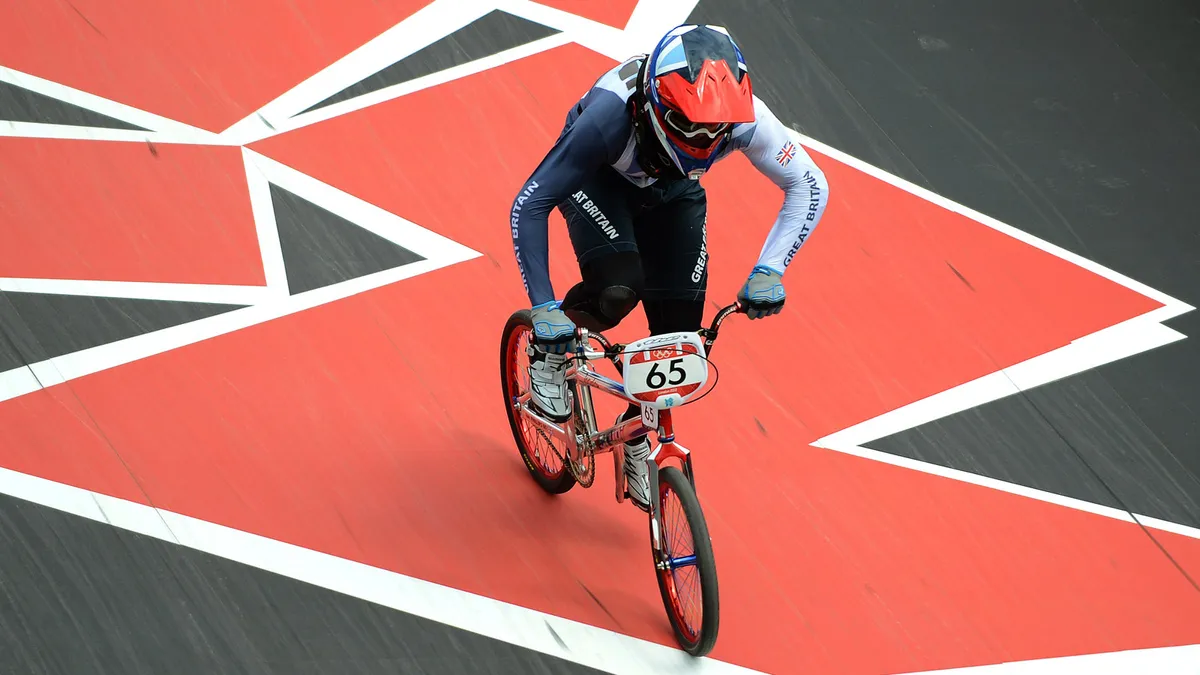
"You need to take it steady and build up your skills through the different levels to be able to get to a stage where you’re good enough to push the boundaries. Most injuries occur when people try to do things they’re not capable of.
"If you’re recovering from an injury, having the confidence that it has completely healed is massive before you jump back on the bike. Time away and going through the recovery process – the rehab, the physio and all that goes with it – are really important.
"Once you’re able to live a normal life off the bike, get back on your bike. You may be anxious about crashing or the injury occurring again, so take it slowly, one step at a time. Also, make sure you take steps to prevent future injuries, like wearing pads if you ride BMX!
"Injury is pretty much the lowest point for a rider but the enjoyment you get from training and competing against others outweighs the disappointment. The main thing is riding within your comfort zone.
"If you’re with a group of riders who have had more experience or been riding at a higher level, it’s no good trying to chuck yourself in at the deep end trying to keep up with them."
Recovery
By Jon Norfolk, Great Britain Paracycling Head Coach
"Recovery is the key element of training. It starts as soon as you stop training, so it’s vital to fuel well and not burn yourself out by not allowing yourself enough time in between sessions to adapt.
"When they feel they aren’t getting anywhere, many people make the mistake of trying to train harder to make the difference – but digging yourself into a hole will not allow any quality training to take place.
Give yourself some quality down-time away from the bike to recharge
"Correct fuelling is also important to make the most of recovery periods – a balanced diet with good quality carbs, proteins and hitting your five a day, every day. Try to eat within 30 minutes of finishing your training to help the immediate recovery process begin.
"Some athletes describe it as feeling ‘stale’ on the bike or ‘heavy legged’. Listen to your body. Common signs of a need to rest include disrupted sleep, simply not wanting to train or a change in mood.
"Give yourself some quality down-time away from the bike to recharge the batteries both physically and mentally."
Pacing
By Laura Trott, Four time Olympic gold medalist

"If you go out easier and you are still travelling at that speed a few miles later it will feel hard to maintain but is doable. If you go out hard then you will definitely slow down when the effort catches up on you because of the lactate in your legs.
"On the track, the biggest mistake in timed events is going out too hard. In a 3km pursuit for instance, the first few laps should feel easy, but it’s hard to get your head around this to begin with.
"For a 4km pursuit I’d go out at a pace that I thought I could maintain for 3km and try to hang on for the last 1km. This would be pretty flat out. A 50km road race would be different as you would be able to use other riders. I would go out at a medium pace and slipstream other riders if it was quicker than I thought I could manage for the whole race. You could also make small efforts when you’re in the pack.
"For a 100-mile sportive I would start very steady. If I felt good during the ride I would lift the pace nearer the end, but I’d get to the point where I knew I would complete it first before trying too hard and blowing."
Motivation
By Dani King, 2012 Olympic gold medalist, 2011-13 world champion

"Like most people who regularly train, I find it difficult to get myself out the door when I’m feeling tired from previous sessions, but here’s how I try to motivate myself.
"Having a variety of indoor sessions is always a good idea, especially if it’s raining or icy on the roads. If you’re out in bad weather, try to change a session round so you’re not exposed for too long: a one-hour ride with four or five hard efforts instead of a two-hour ride.
"Riding different routes helps stop me getting bored on the road. Some days it could be a flat route and on others a hilly session. Turbo sessions tend to be much shorter but generally have more focused efforts, perhaps an hour with four 10-minute brisk efforts. I’ll also do gym work and stretches to mix it up.
"Having a specific course which you can time and then try to beat will help stop training getting boring, but don’t always try to beat your time – it can be depressing when it doesn’t come down. Having a goal is another way to distract yourself: a sportive to complete or a specific race in the future to concentrate your training towards."
Nutrition
By Nigel Mitchell, head of nutrition at Team Sky and British Cycling
"The importance of maintaining a healthy lifestyle alongside your fitness routine is key to ensuring you’re benefiting from the exercise you’re doing. The body requires a combination of all nutrients to maintain a healthy lifestyle.
Try to maintain a diet that is quality over quantity
"Try to maintain a diet that is quality over quantity. To get the right balance, the focus of nutrition is always on the quality of food so we work really hard with the riders to make sure they’re eating plenty of vegetables, fruit, fish, chicken, lean meat and carbohydrate sources. Having more wholegrain foods such as rice, bread and pasta provides riders with vitamins as well as carbs.
"What we’ve found has a lot of success from a weight management point of view is when people analyse their meal plans more proactively. If people try to eat little and often rather than just three meals a day it can be much more effective for weight loss and topping up energy sources.
"Don’t forget to keep hydrated. My suggestion is 500ml of fluid every couple of hours when not exercising."
Mental preparation
By Geraint Thomas, Team Sky rider and former Team Pursuit World and Olympic champion
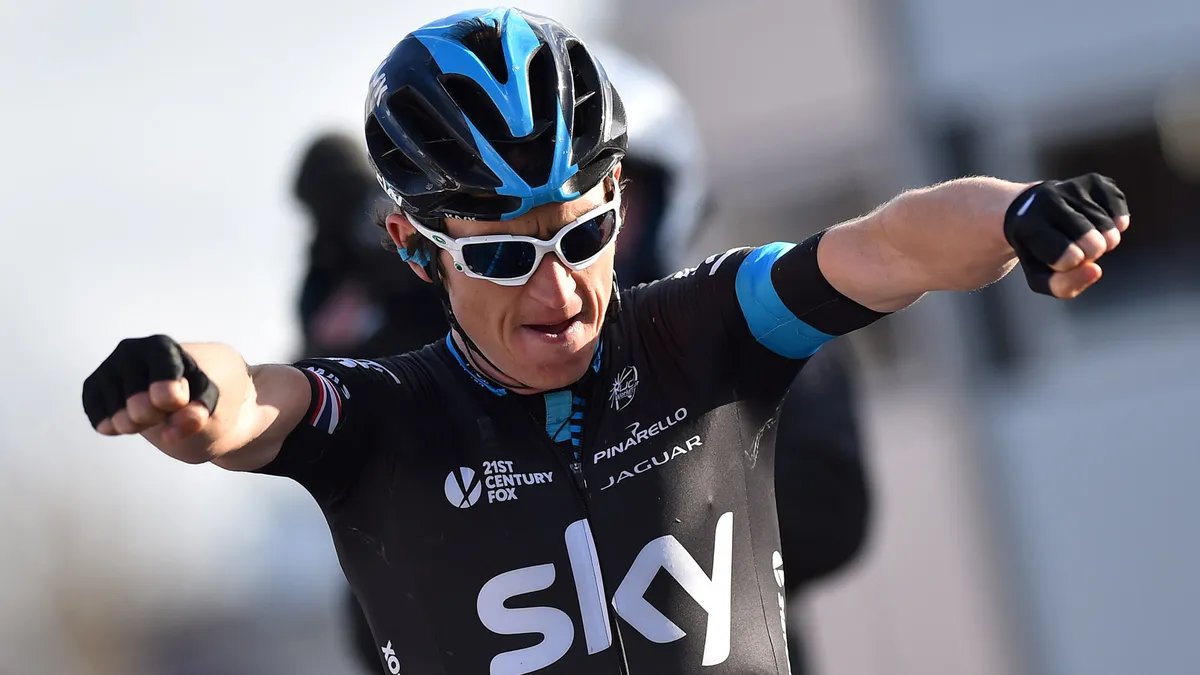
"I have always enjoyed racing and my approach has always been the same – not to be afraid and just go out there and try to enjoy it, and that’s how I still approach things today.
"On race day I try to visualise the race. I go over in my head what I want to do and how I want to ride it. Your mind starts to wander an hour or so before the race. Just try to do that, it stops any little doubts that come into your head.
"I also like to chat with other riders while warming up. It’s then that you really start to focus and zone in. After that you have about 10 minutes before the race so you don’t actually have much time to think about it."
Sprinting
By Lizzie Armitstead, Olympic silver medalist and 2014 UCI Women's Road World Cup
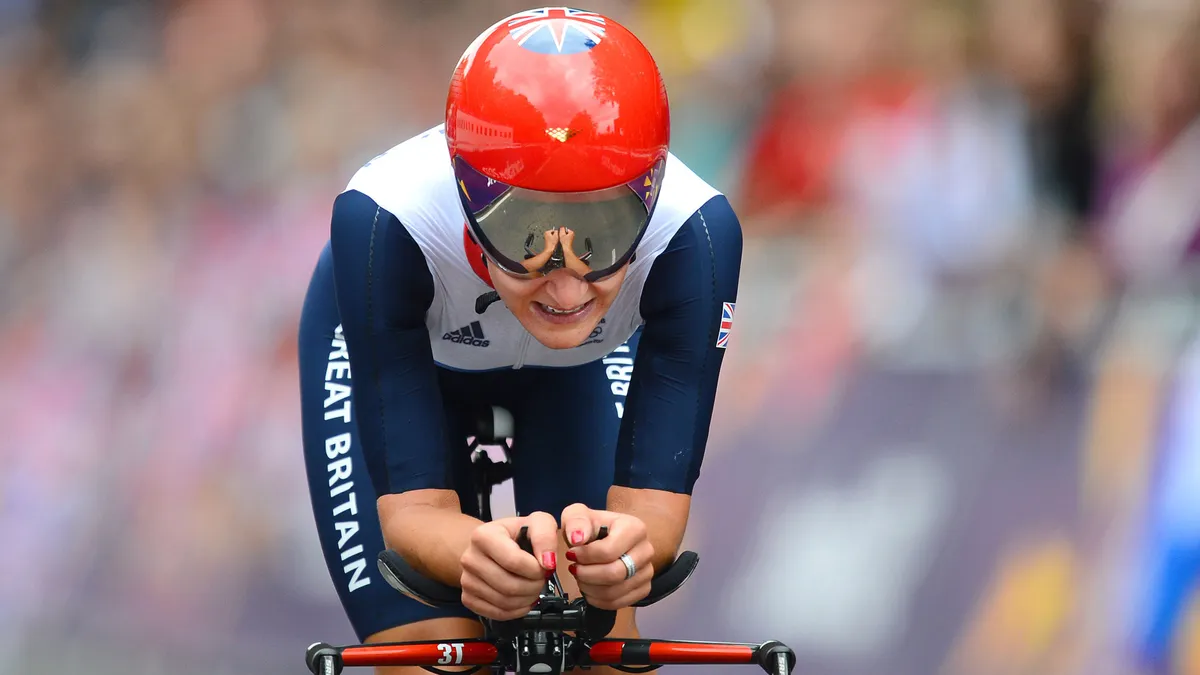
"Since the GB Cycling Team picked me up at just 15 years of age and I joined the national Talent Team, having never ridden competitively before, I have certainly learnt a lot. Sprinting is about being confident in the bunch and being at the front of the peloton.
"Timing is crucial, and learning to trust your instincts. Technique is the finishing touch, but without power and speed you can’t go very fast. I think you’re born with the ability to sprint but you can develop your technique.
"There are a couple of simple drills you can do on the road to help you improve sprinting: overgeared climbing to increase your strength, and 30-second downhill sprints to increase your power and cadence.”
"Here are my three top tips for winning a bunch sprint:
- Don’t leave the front third of the peloton for the last 10km of the race.
- Analyse the finish beforehand to determine what gear you should be in.
- When you decide to go, don’t hesitate – just go with all of your power."
Strength
By Shanaze Reade, multiple BMX and Team Sprint World Champion

"What I have learnt on the GB Cycling Team is that specific exercises will suit one person but maybe not others. Also, rest is very important especially when you are tempted to overtrain in the gym. Work out what your goals are first. Is it endurance or explosive power that you are after? Or perhaps both if you want to be able to sprint at the end of a road race… As you can imagine, training to achieve these goals is going to be totally different.
"As a general tip, do not sacrifice your form and technique in any strength and conditioning exercise for a heavier weight or extra sets. Patience is needed to progress in an effective and safe way. It is not worth risking injury.
"If you hate the gym but want to improve your strength, intervals are the best way, especially if you have a good hill near you. Concentrate on trying to stay in the saddle and time yourself from the bottom to the top of the hill on a gearing that offers enough resistance that you can churn out around 45-50rpm. Try to decrease your time while also looking at increasing the gear."
Disappointment
By Andy Tennant, Team Pursuit World Champion and Team WIGGINS rider
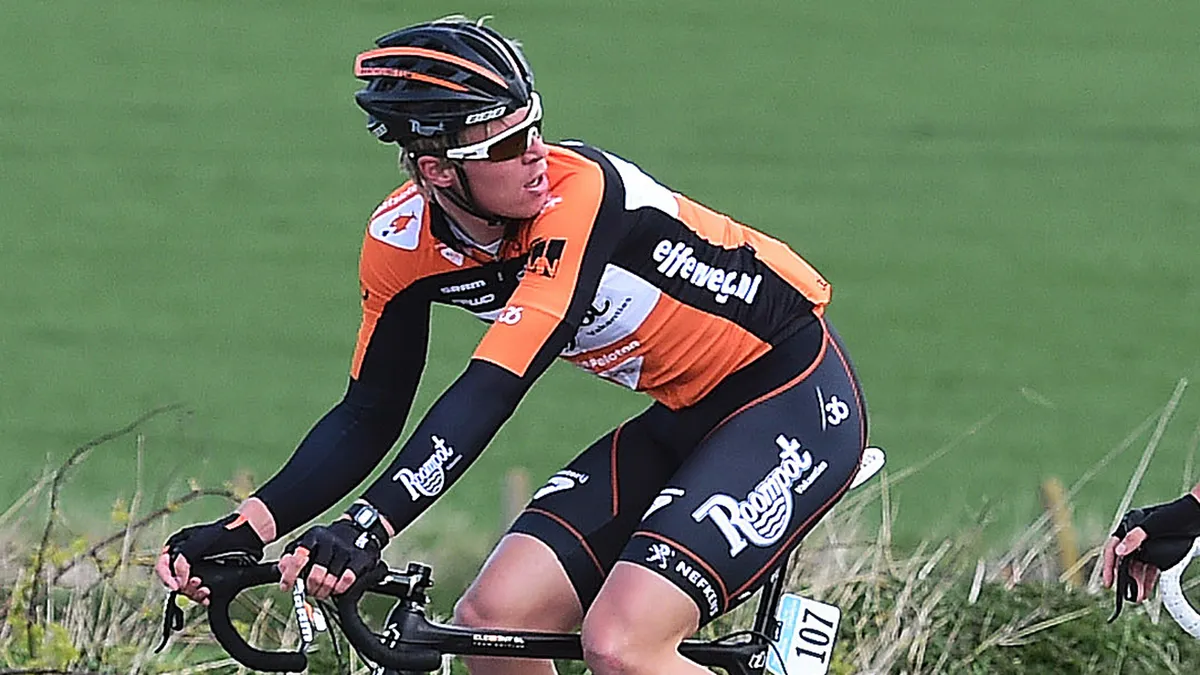
"If I can say I gave it 100 per cent, I am content with others bettering me (occasionally!). I may not be happy, but it is easier to progress from. The first process is to ask yourself why. Are you ill? Have you got an injury or a fitness issue? Then work on a plan of action.
"A sporting career has massive lows and highs. It is gutting when you spend your life trying to be the best and you aren’t going well or others are better, but you just have to accept it.
"Learning to move on is a big thing; using logic and not your emotions is a big part and a key to performing well. Life isn’t fair, so grab the opportunities that come your way. Unfortunately, disappointments are guaranteed."
